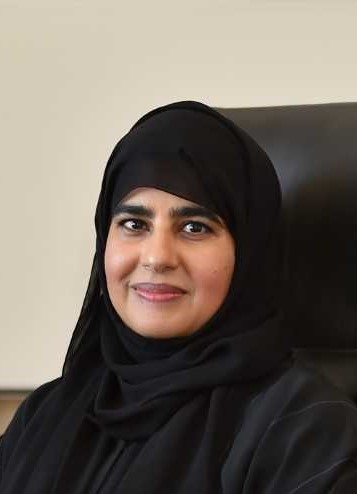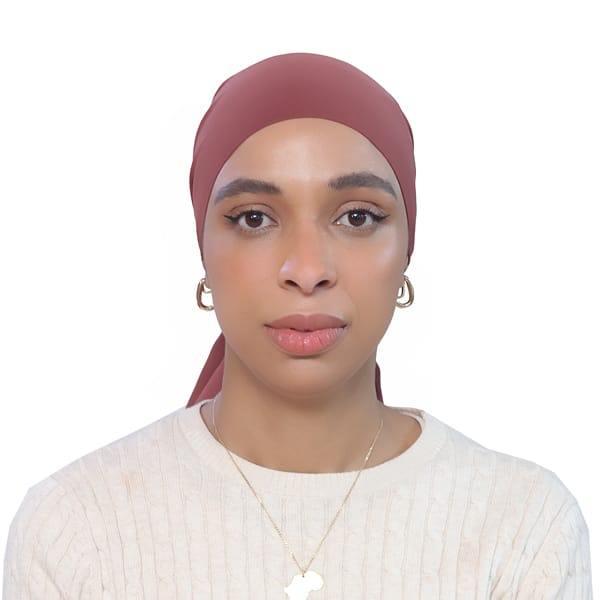

Professor Shaaban Khalil is one of the prominent high-energy physics in the Middle East. He is well known for his outstanding contributions to understanding of possible new physics beyond the standard model of particle physics. He is the founding director of the center for Fundamental Physics at Zewail City of Science and Technology in Egypt, since 2012. He also the co-author of two books on particle physics, published in CRC press in the UK. His work enabled him to obtain the D.Sc, degree in 2006. His research has been widely recognized, and he has received innumerable national and international awards. He is visiting professor at the university of Southampton, since 2011. Prof, Khalil is the founding team leader of the Egyptian particle group at the CMS experiment at CERN, Geneva, Switzerland. In addition, prof. Khalil is the co-founder of African Strategy of Fundamental and Applied Physics, and the chair the African Synchrotron Initiative Committee.

Professor of physics at Ahlia University. Received the BSc. Degree in Electrical Engineering from Baghdad University. Obtained the DEA in Solid State Electronic and Particles from The University of Pierre et Marie Curie, Paris, France (1973). Doctorate in Engineering (1976), and then a doctorate d'Etat in Physics from the same University (1981). Consultant to UNDP on renewable energy (Switzerland, 1981), Researcher at the National Center of Scientific Research (CNRS, France, 1982). Chairman, Department of Physics, Bahrain University (1985). Academic visitor to Imperial College, London (1990). Dean, College of Science, Bahrain University, (1991-1995). Dean of Graduate Studies and research, Ahlia University (2010-2015). Emeritus professor, Ahlia University (2019-present). Published over 120 research work in reputed International Journals and conferences on Electronic Devices, Condensed Matter Physics, Nonlinear Optics, Nanotechnology, and Astrophysics. Published many books including "Encyclopedia of Astronomy, Astrophysics, and Space Science". Organized many International workshops and conferences on Condensed Matter Physics, Nanotechnology, Astrophysics, and Space Science. Obtained the world Medal in Advanced materials from IAAM (2017). Founder of Bahrain Astronomical Society, and Arab Union on Astronomy and Astrophysics. Member of many local, regional, and international scientific societies.

Ali Abdou received a B.S. degree in nuclear engineering from the Alexandria University, Egypt in 1992, M.Sc. in Nuclear Engineering in 2002, M.Sc. in Computational Sciences in 2003 and Ph.D. in Nuclear Engineering in 2005 all from the University of Wisconsin Madison, USA. Dr. Abdou has almost 30 years of experience in the nuclear science and engineering, plasma processing and nanofabrication fields. He participated in the design, pre-operation, inauguration and operation of Egypt's second test and research nuclear reactor ETRR-2 from 1994 to 1999. He participated in the process development of Intel 65nm, 45nm and 32nm microprocessor fabrication nodes from 2005 to 2009. He established the Kansas State University Dense Plasma Focus Laboratory while working there as assistant professor of nuclear engineering from 2009 to 2013. He participated with the late Nobel Laureate Ahmed Zewail to establish Zewail City of Science and Technology in Egypt from 2013 to 2016 where he developed the nanotechnology program curriculum and participated in establishing the state-of-the-art nanotechnology institute that houses a cleanroom facility (20 million dollars class-100), smart and nanomaterial synthesis, material characterization, and microscopy centers. He helped in establishing the mechanical engineering department at the American University of the Middle East in Kuwait from 2015 to 2017. He is currently working as a technical advisor in the Nuclear Technology group at Halliburton where he is leading the company's R&D work to develop their pulsed neutron generators. Dr. Abdou is a member of several leading scientific societies and technical groups. His current research interests include high temperature plasma, low temperature plasma, development of compact, nano-second multi-radiation sources, plasma nanoscience, semiconductor nanofabrication, optical emission spectroscopy and x-ray emission from plasmas. Prof. Abdou has authored or co-authored over 60 research publications.

Hichem Eleuch is a Professor of Physics at the University of Sharjah, UAE. He also serves as the Principal Investigator of the Research Group "Quantum Information, Quantum Simulation, and Quantum Processing" at the University. Dr. Eleuch's educational background includes a Diplom-Ingenieur Univ. (Electrical and Information Engineering) from the Technical University of Munich in 1995 and a Ph.D. in Quantum Physics from Kastler Brossel Laboratory at Ecole Normale Supérieure de Paris (ENS) and Université Pierre-et-Marie-Curie (Sorbonne University) in Paris, France in 1998. His research interests are quantum optics, quantum computing, matter-radiation interactions, low dimensional quantum systems, mathematical physics, and complex systems. He has worked at and visited several prestigious universities and research institutes including Texas A&M University, Max Planck Institute for the Physics of Complex Systems, Princeton University, McGill University, Auckland University, University of Montreal. Prof. Eleuch has published more than 250 papers in journals (indexed in Scopus and Web of Science) and holds 8 US patents. He has refereed articles for more than 50 physics journals (Nature Communications, Scientific Reports, Physical Review Letters, etc.) and Mathematics (Applied Mathematics and Computation, Journal of Mathematical Physics, etc.). In addition, he has evaluated projects for both MITACS, a Canadian funding agency, and the Austrian Science Fund. He has successfully supervised and graduated more than 15 (Ph.D. and MSc) students and also monitored several Postdoctoral Fellows. He has been awarded several fellowships (from the Fulbright Foundation, Max Planck Society, and the International Center of Theoretical Physics, Trieste, Italy). He is also a Fellow of the African Academy of Sciences and a member of Sigma Xi, The Scientific Research Honor Society, USA.as well as a member of the Mohammed bin Rashid Academy of Scientists.

Nidal CHAMOUN is a full Professor of Theoretical Physics at Higher Institute for Applied Sciences & Technology, Damascus, SYRIA, where he works since 1997 after having studied in the universities of Oxford (Ph.D./Physics), Cambridge (M.A.St./Mathematics), Paris-Sorbonne (D.E.A./Electronics) and Ecole Centrale (Diploma/Engineering). He is an `Alumnus of Humboldt fellowship, a `CAS-PIFI Scholar' and a past `ICTP Senior Associate' collaborating with research groups in Germany/China/Italy and Egypt. His main research activities lie in the domain of Particle Physics/Cosmology.

Professor Mariam Al Maadeed is a distinguished Professor of Physics and Materials Science at Qatar University (QU). With over eight years of experience as Vice President for Research and Graduate Studies, she has been actively developing strategies and initiatives that enhance research and graduate education. Her notable contributions include advancing academic initiatives, fostering innovation, cultivating strong relationships with industry, and establishing new graduate programs that align with the evolving needs of the academic and professional landscape. In addition to her role at QU, Professor Mariam is actively involved as a board member in various institutions, industries, academic and innovation committees. She has initiated impactful local and international projects such as the Academic Network for Development Dialogue with ESCWA, the Journal of Emergent Material (Springer), QU Press, innovative graduate programs, and the Center for Advanced Materials. With extensive expertise in higher education, impactful strategies, and administration, Professor Al Maadeed is a recognized figure in the fields of materials science and nanotechnology. She has a significant publication record, with over 200 research papers in international journals and conferences, book chapters, patents, and edited books. Professor Mariam has successfully led many research grants and projects in collaboration with universities, institutions, and companies globally. She has been invited as a peer reviewer by prestigious institutions, scientific journals, and international conferences. As a respected expert, Professor Mariam has conducted workshops for both local and international institutions, including major industrial companies and ministries. She has chaired conferences, delivered keynote speeches at international events, and actively participated in various internal and external committees. Professor Mariam's outstanding contributions have been recognized through prestigious awards, including the State Prize in Physics in 2010 by his highness the Amir, the Plastic Excellence Award from the Gulf Petrochemicals and Chemicals Association in 2014, and the Leadership Excellence Award for Women from the Conference and Exhibition of Engineering for the Middle East in 2015. She is also a key member of the Al-Bairaq team, which received the World Innovation Summit for Education (WISE) award in 2015. In 2016, she was honored with the Islamic Educational, Scientific, and Cultural Organization (ISESCO) Prize for Technology.

Professor Riyadh Mirza is one of the first workers in the field of lasers and optics in Iraq. He got his BSc in Physics from the University of Baghdad in 1976 followed by MSc and PhD in Laser Physics. Many courses on lasers and optics from Imperial College, University of Arizona, MIT, University of California and Caltech. Certificate of innovation and leadership from Keel University. He is the author of many books on lasers and computer sciences, and he translated the most useful books on lasers. One of the books awarded as the best book in laser for schools from the former president of Iraq. He also served as an Investigator of Innovation at innovate EU. He worked in Al Hazen Research center and the Central Organization for Standardization and Quality Control in Iraq. He held the position of professor of Fourier optics and Holography in the institute of laser for post graduate studies in the university of Baghdad. He is the founder and director of Alsalam company for Research and Development of instruments for laboratories of physics from 1989 to 2019. He is the founder and director of the UK-scientific ltd company in the United Kingdom since 2009. The company produces experimental kits in optics and lasers with the state-of-the-art of all its products. Many publications in the field of optics and laser applications. He was a Former member in AOS, OSA (Optica) and SPIE 1980- 2016 and a member in the Iraqi laser society, Iraqi laser scientist society.

Mounia Laassiri is a nuclear and particle physicist employed by Brookhaven National Laboratory (USA) as a postdoctoral researcher, working as part of the ATLAS Experiment and the African School of Physics (ASP). She holds a PhD in physics and nuclear instrumentation from Mohammed V University in Morocco, where she also earned a bachelor's degree in fundamental studies and a master’s degree in security of computer networks and embedded systems. Laassiri also serves as a co-convener of the African Young Physicists Forum (YPF) within the African Strategy for Fundamental and Applied Physics (ASFAP). In this role, she organizes early-career African physicists into YPF to address issues related to their career growth, supporting the mission of the African Physical Society. YPF activities include panel discussions, workshops, invited talks, and contributions to the ASFAP report. In 2023, Laassiri was appointed Editor of the African Physics Newsletter (APN), published quarterly by the American Physical Society (APS). As APN Editor, she promotes the visibility of physics education and research in Africa by encouraging, soliciting, and editing contributions for APN's quarterly issues. Laassiri was also appointed as a Trustee on the Board of Trustees of ASP and to the International Organizing Committee (IOC). Her involvement in APN, ASP, and ASFAP gives her the ability to connect with African policymakers in physics education and research, which is an essential component of the success of the African Physical Society (ArPS)